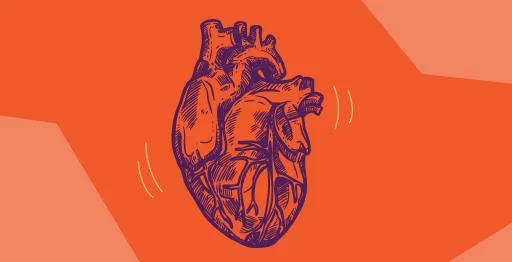- Introduction to Alcohol and Heart Disease
- How Alcohol Affects Heart Disease Risk
- Short-Term Effects of Alcohol on the Heart
- Long-Term Effects of Alcohol on Heart Health
- Alcohol Consumption Guidelines for Heart Health
- Real-Life Case Study: The Impact of Alcohol on Heart Disease Risk
Introduction to Alcohol and Heart Disease
Alcohol consumption is a common part of many social occasions and personal routines, but its effect on heart health is often misunderstood. While moderate alcohol intake has been linked to certain heart health benefits, excessive alcohol consumption can significantly increase the risk of developing heart disease. Understanding the balance between these effects is crucial for making informed decisions about alcohol intake and heart health.
In this article, we will explore how alcohol affects heart disease risk, the short-term and long-term effects on the cardiovascular system, and provide guidelines on how to consume alcohol responsibly to minimize harm. Whether you’re concerned about your own heart health or that of a loved one, this information can help you make more informed choices.

How Alcohol Affects Heart Disease Risk
Research shows that alcohol can have both positive and negative effects on heart health. The impact depends on the amount consumed, the frequency of consumption, and the individual’s overall health condition. Here’s how alcohol can affect heart disease risk:
- Moderate Alcohol Consumption: Moderate drinking, typically defined as one drink per day for women and two drinks per day for men, has been shown to increase levels of high-density lipoprotein (HDL) cholesterol, the "good" cholesterol, which can help reduce the risk of heart disease.
- Excessive Alcohol Consumption: Drinking in excess can lead to high blood pressure, increased levels of triglycerides, and an enlarged heart. These factors are major contributors to the development of heart disease, including heart failure, arrhythmias, and coronary artery disease.
- Alcohol and Inflammation: Chronic alcohol consumption can lead to inflammation in the body, which may damage blood vessels and increase the risk of heart attacks and strokes.
While moderate alcohol intake may have certain protective effects, it’s important to understand the risks associated with heavy drinking. The key is moderation, as excessive alcohol can easily outweigh the benefits.
Atlanta Heart Specialists
atlanta heart specialists
4375 Johns Creek Pkwy #350, Suwanee, GA 30024, USA

Short-Term Effects of Alcohol on the Heart
The short-term effects of alcohol on the cardiovascular system can be noticeable even after one episode of heavy drinking. These effects include:
- Increased Heart Rate: Alcohol can cause the heart to beat faster and less efficiently, leading to palpitations and an irregular heartbeat in some individuals.
- Blood Pressure Spikes: Drinking large amounts of alcohol in a short period can cause a temporary increase in blood pressure, a risk factor for developing heart disease over time.
- Dehydration: Alcohol is a diuretic, which can lead to dehydration and reduced blood volume, potentially causing dizziness, weakness, or fainting.
These short-term effects, although temporary, can be dangerous for individuals with pre-existing heart conditions or those at risk of developing heart disease. Understanding how alcohol impacts your body in the short term can help you better manage your drinking habits.
Long-Term Effects of Alcohol on Heart Health
Chronic heavy drinking can have significant long-term effects on the heart and cardiovascular system. Over time, excessive alcohol consumption can lead to permanent damage to the heart and increase the risk of serious heart conditions:
- Cardiomyopathy: Prolonged heavy drinking can weaken the heart muscle, leading to cardiomyopathy, a condition that makes it harder for the heart to pump blood effectively.
- Arrhythmias: Chronic alcohol abuse can lead to irregular heartbeats, known as arrhythmias, which can be life-threatening if not properly managed.
- Heart Attack and Stroke: Chronic alcohol use is associated with an increased risk of heart attacks and strokes due to its effect on blood pressure, blood clotting, and inflammation.
The long-term consequences of heavy drinking on heart health can be devastating. It’s important to understand that the risks associated with alcohol consumption grow over time, and the earlier an individual reduces their alcohol intake, the better their heart health outcomes will be.
Alcohol Consumption Guidelines for Heart Health
To maintain good heart health, it’s essential to follow guidelines that minimize the risks associated with alcohol consumption. The American Heart Association recommends the following:
- Drink in Moderation: Women should limit alcohol intake to one drink per day, while men should have no more than two drinks per day.
- Avoid Binge Drinking: Avoid consuming large amounts of alcohol in a short period, as this significantly increases the risk of heart damage and other health issues.
- Consider Health Conditions: Individuals with a history of heart disease, high blood pressure, or diabetes should consult their healthcare provider before consuming alcohol.
- Stay Hydrated: Always drink plenty of water alongside alcohol to minimize dehydration and its effects on the cardiovascular system.
By adhering to these guidelines, individuals can reduce the impact of alcohol on heart disease risk and enjoy the social benefits of drinking in moderation without compromising their health.
Real-Life Case Study: The Impact of Alcohol on Heart Disease Risk
Consider the case of Mark, a 58-year-old man who had been drinking heavily for most of his adult life. Mark didn’t think much about his alcohol consumption, enjoying a few drinks every evening to unwind after work. Over time, he began experiencing symptoms like shortness of breath, chest pain, and fatigue.
After a visit to his cardiologist, Mark learned that his long-term alcohol use had contributed to high blood pressure, an enlarged heart, and early signs of heart disease. Mark’s doctor advised him to cut back on alcohol and adopt a heart-healthy lifestyle. With a combination of reduced alcohol intake, regular exercise, and dietary changes, Mark’s heart health improved significantly, and his symptoms were greatly reduced.
Mark’s story highlights the importance of being mindful of alcohol consumption and its potential effects on heart health. While alcohol may be enjoyable in moderation, long-term heavy drinking can have severe consequences on cardiovascular health. By making informed choices, individuals can prevent heart disease and maintain a healthy lifestyle.
If you’re concerned about your heart health and need guidance on managing alcohol intake, HeartCare Hub offers the best resources and recommendations to help you make positive lifestyle changes.






















Deborah Heart and Lung Center
deborah heart and lung center
200 Trenton Rd, Browns Mills, NJ 08015, USA